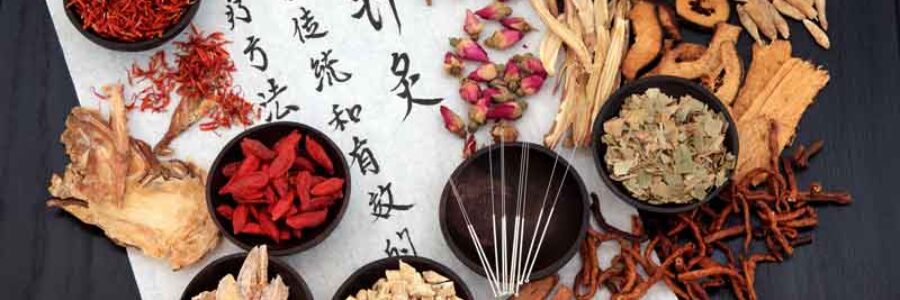Traditional Chinese Medicine (TCM) has multiple modes of treatment, but its main tools are herbal medicine and acupuncture.
For those seeking to heal a chronic skin condition, it’s good to know the benefits of both, and how they are used in TCM dermatology.
Acupuncture and Herbal Medicine – A Common Goal
Both acupuncture and TCM herbal medicine are recognized by the World Health Organization as effective for treating a wide range of health conditions. They both spring from a centuries-old tradition with roots in ancient Chinese medicine theory. Using this as a base, they both bring health by restoring balance to the body’s internal organ and energy systems.
Although herbal medicine is preferred for dermatology conditions, acupuncture can be a great boost in helping with sleep problems, itching, inflammation, allergic reactions, and more. Acupuncture is also great for non-surgical face-lifts, and treating and toning aging skin. You can ask your TCM dermatologist if acupuncture might augment your treatment plan. Since both acupuncture and herbal medicine affect your internal health, if you are seeing both an acupuncturist and an herbalist separately, it is important to make sure both professionals know this so that both your herbal and acupuncture treatments stay consistent with your goals.
Why is Herbal Medicine Preferred in TCM Dermatology?
There are many reasons why herbal medicine is the treatment of choice for severe skin conditions:
- Some people are afraid of needles – even though the insertion of an acupuncture needle is relatively painless.
- Also, if a patient is in the middle of a severe flare-up, their damaged skin might not tolerate needle insertion. If their flare-up covers the whole body, it can be difficult to find any area where inserting a needle will be comfortable.
- Flare-ups often itch! If you are very itchy, will you be able to stay still for at least twenty minutes? You don’t want to move when acupuncture needles are in place.
- Herbal medicine can be used daily, while acupuncture can usually only be done weekly due to time and budget issues.
- You can take your herbal medicine at home rather than travel to an office or clinic.
- Herbal treatment won’t aggravate affected areas of the skin due to needle insertion.
- Herbal medicine can be calibrated more efficiently to match individual treatment needs and changes in your condition, while acupuncture is more general.
Conclusion
Both acupuncture and TCM herbal medicine are powerful tools to restore and maintain your overall health and the health of your skin. However, herbal medicine offers greater flexibility and ease of treatment for most dermatology patients.
If you’re curious about both acupuncture and herbal medicine, we recommend you talk to a TCM herbal medicine professional first. They will be able to provide specific recommendations for your unique skin symptoms and let you know whether adding acupuncture is advisable in your case.
Want to Learn More About Skin Health?
Click HERE to get the Amethyst Holistic Skin Solutions Newsletter. You’ll receive interesting information about skin health via articles, before/after pictures, case studies of Amethyst patients, videos, interviews and more. Feel free to share this article with someone who you think may benefit.
About the Author
Olivia Hsu Friedman, LAc, Dipl.OM, DACM, Cert. TCMDerm, is the owner of Amethyst Holistic Skin Solutions and treats Acne, Eczema, Psoriasis, and TSW. Olivia treats patients via video conferencing using only herbal medicine. Olivia is Chair of the Board of Directors of the American Society of Acupuncturists, serves on the Advisory Board of LearnSkin, and is a faculty member of the Chicago Integrative Eczema Group sponsored by the National Eczema Association.



